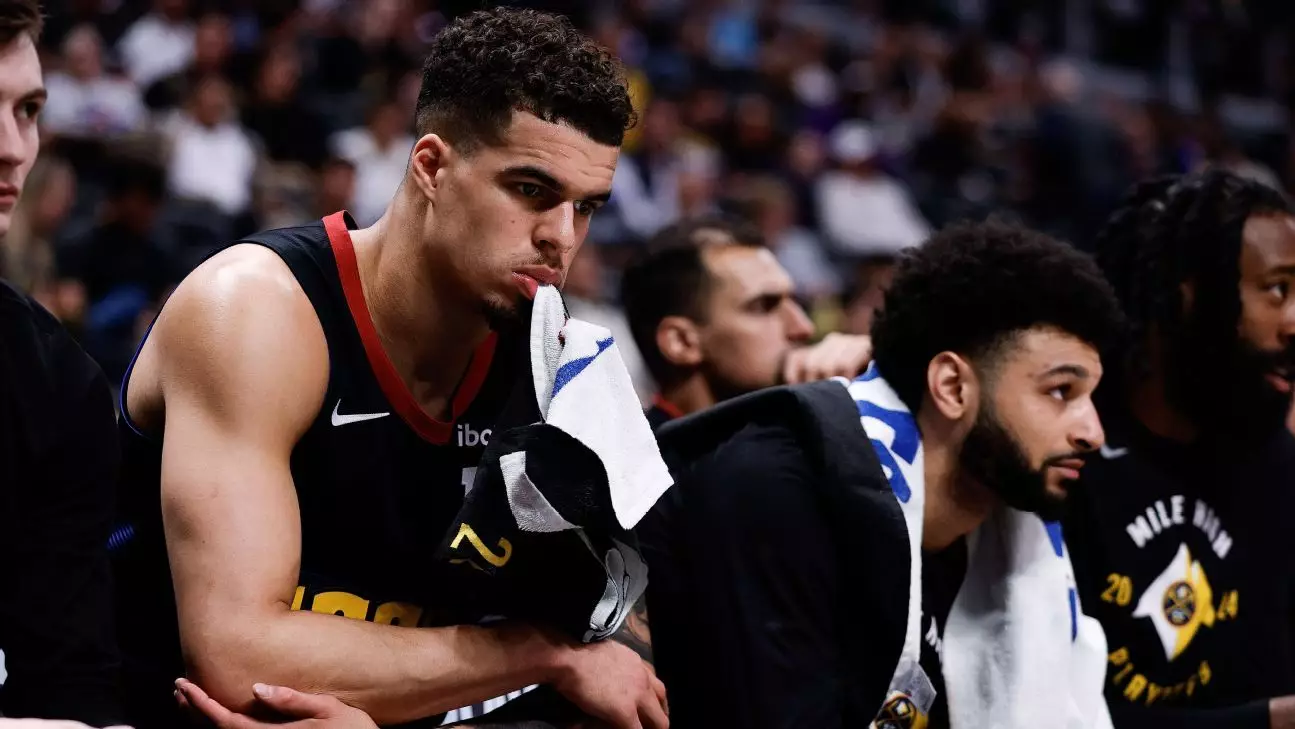In recent years, the surge of sports betting has profoundly altered the landscape of professional sports, distorting the pure enjoyment that once defined athletic competition. Athletes like Michael Porter Jr. have voiced concerns that the essence of sports—the thrill of the game and the display of true skill—is increasingly overshadowed by monetary interests. When the focus shifts from excellence and entertainment to financial gain—often at the expense of fairness—the integrity of the sport suffers. This reality not only tarnishes the reputation of athletes but also diminishes fans’ trust and passion. The core issue is that many now view games through a lens of profitability rather than appreciation for athletic prowess, leading to a hollowed-out sporting experience where the game itself is secondary.
The Troubling Impact on Athletes and Their Communities
Porter’s reflections extend beyond the game itself, shedding light on the profound personal and societal implications. His brother, Jontay Porter, faced sanctions following his involvement in a gambling scheme aimed at manipulating game outcomes for financial benefit. This episode exemplifies how the lure of quick money can entrap vulnerable athletes, especially those who come from disadvantaged backgrounds. The narrative reveals a cycle where athletes, often under financial strain, are tempted to compromise their integrity by participating in schemes that threaten their careers and mental health. Porter’s empathetic acknowledgment underscores a sobering truth: the environment created by widespread sports betting is inherently corrosive for young and impressionable athletes, risking their futures and the stability of their communities.
The Dangerous Rise of Prop Bets and Online Gambling
The proliferation of proposition bets—bets on specific game statistics—has skyrocketed with the expansion of online sports betting platforms. This trend creates a complex and risky environment for athletes who are under relentless pressure from bettors and fans. Porter highlighted the dangerous consequences, including threats and intimidation, which reveal a disturbing undercurrent within the betting culture: violence and harassment directed at players. Such hostile sentiments threaten not only individual safety but also the broader atmosphere of respect and dignity in sports. The current landscape, where betting is often accessible through apps and websites outside regulated venues, exacerbates the risk of corruption and misconduct. Porter advocates for stricter controls—limiting betting to in-person, regulated environments like Las Vegas—to mitigate these dangers. Without such reforms, the integrity of sports remains vulnerable, and the trust between fans and athletes continues to erode.
A Critical Reckoning for the Future of Sports
By voicing his concerns publicly, Michael Porter Jr. serves as a stark reminder of the hidden costs associated with unchecked sports betting. The industry’s rapid growth risks turning sporting spectacles into commodities driven by profit rather than genuine competition and entertainment. Athletes are caught in a perilous web of temptation, abuse, and violence, which threatens to undermine the foundational values of sportsmanship. As the gambling industry continues to expand, a conscious effort must be made to reevaluate the regulation, accessibility, and cultural perception of sports betting—before the damage becomes irreversible. The challenge lies not just in safeguarding players, but in preserving the integrity and soul of competitive sports for generations to come.

